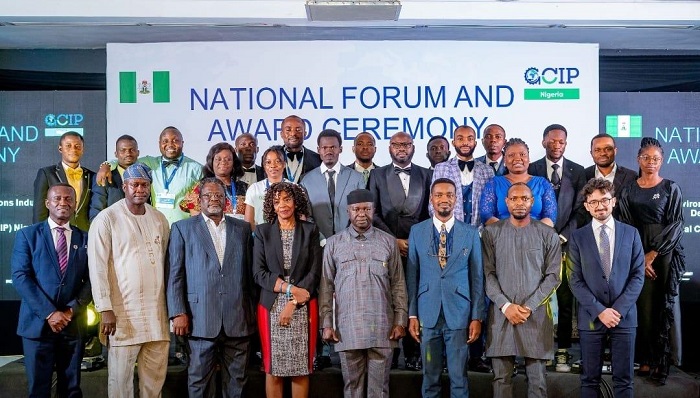The Global Cleantech Innovation Programme (GCIP) is important to Nigeria because it will enable the nation to achieve long-term visions such as cutting emissions to net zero by 2060 and the Sustainable Development Goals (SDGs) even before the 2030 deadline.

Minister of Science, Technology and Innovation, Adeleke Mamora, who made the submission at the National Forum and Award Ceremony of the GCIP in Lagos on Wednesday, February 15, 2023, noted that the three-year programme would help to mainstream production and service activities at the level of the small medium scale enterprises, as well as focus on cleaner energy technologies.
Mamora, represented by the Director, Environmental Science and Technology in the Ministry, Peter Ekweozoh, said: “At the end of three years, the Federal Ministry of Science, Technology and Innovation will take this programme to all nooks and crannies of this country. And we will be having start-ups not only in the energy sector, there will be startups in the agricultural sector, there will be startups in the industry sector, there will be startups in the water resources sector, and there will be startups in the waste sector.
“These are the key seven sectors government has pledged to commit to reduction of global warming. So, this project is pivotal and key. And once we sign up to this number of startups, young people that can create wealth through green processes and green methodologies, I think that is a plus which will help us in no time to achieve our long-term vision, which Nigeria has also pledged to commit to zero carbon emission by 2060. It will also help us to achieve the sustainable development goals in a very short time. So, this programme is very important.”
While thanking the United Nations Industrial Development Organisation (UNIDO) for helping Nigeria to secure the start-off fund for the project from the Global Environment Facility (GEF), Mamora described the effort as pivotal as Nigeria has signed to the Paris Climate Change Agreement in 2015, developed Nationally Determined Contribution (NDC) and pledged to commit to reduction of global warming in seven sectors up to 47%, 27%. conditional and 20% unconditional.
“The implication of that commitment by government is that if you want to develop, for instance, your agricultural sector, you must not use processes or technologies that emit greenhouse gas. What it means is that if you want to increase the quantity of electricity production in Nigeria, you must not use fossil fuel. You must not use means that will lead to production of carbon dioxide and other forms of greenhouse gas. That’s the implication. For this programme we are doing, it is helping us to mainstream our production and service activities at the level of the small medium scale enterprises. And this programme is focusing on cleaner energy technologies.”
The Minister revealed that the journey to position Nigerian tech innovators in the global scale and deepen green tech across critical sectors of the economy started some five years ago.
According to him, the Federal Ministry of Science, Technology and Innovation made a debut by embarking on Technology Needs Assessment for Climate Change Mitigation and Adoption in Nigeria’s Vulnerable Sectors, and came up with the idea of calling for entries from budding entrepreneurs and innovators to proffer sustainable solutions.
Out of 25 interested participants, three promising innovators and entrepreneurs emerged the winners after painstaking and rigorous processes. The winner left the ceremony with $10,000, first run up with $7,500, while the second run up with $5,000. These tech enthusiasts would proceed further with bigger projects for the benefit of Nigeria, it was gathered.
UNIDO Country Representative, Mr. Jean Bakole, who doubled as the Regional Director, said the Programme sought to build robust innovation ecosystem that could identify and systematically support high impact cleantech technology innovation as well as attract large scale investment.
“This mechanism is expected to deliver significant global impact on limiting global temperature rise to well below 2° C, as well as generating local environmental benefits,” Bakole noted.
He said the project would help Small and Micro Enterprises (SMEs), innovation hubs and start- ups to compete in the global market and connect them to potential Investor, customers and partners through the Global Cleantech Network. “With this, startups in Nigeria would focus on promoting low carbon technologies in order to achieve SDGs 7 and 13,” he added.
Funded by GEF and co-implemented by UNIDO, the GCIP aims to spur local innovations in energy efficiency, green buildings, renewable energy, waste beneficiation, water efficiency, and green transport.
